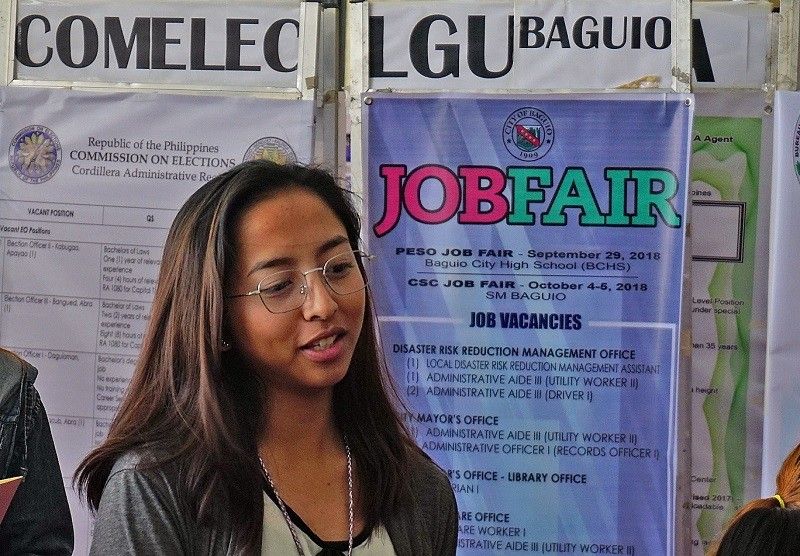Commentary: Should government enforce total ban on contractualization?

Putting a stop to the deeply entrenched practice of contractualization was featured as one of then-candidate Rodrigo Duterte’s top promises on the campaign trail. As he stepped into office, he relentlessly warned companies that he would shut them down and revoke their permits if caught red-handed.
Since then, the Department of Labor and Employment reported that thousands of workers have already been regularized.
In March 2017, DOLE released Department Order No. 174, which established more stringent parameters for employers whenever they contract out their services. After almost two years of protracted negotiations, Duterte issued Executive Order No. 51 on Labor Day, which sought to protect the right of security of all workers based on social justice in the 1987 Constitution.
Conceding that ending contractualization was already beyond his executive power, the president certified Senate Bill No. 1826, or the Security of Tenure and End of Endo Act of 2018, as urgent in September.
Unsurprisingly, various labor groups were unsatisfied with these developments, disappointed with what they felt was the president reneging on his promise. These groups have called for a complete ban on all forms of contractualization.
In a roundtable discussion hosted by Stratbase ADR Institute (ADRi), Dr. Vicente Paqueo, a non-resident fellow of ADRi and a fellow of the Philippine Institute for Development Studies (PIDS), shared his views on the proposed bills pushing for the prohibition of temporary employment, more popularly known as “endo.”
Paqueo argued that, although well-meaning, the proposed amendments could result in adverse consequences that may in effect be anti-growth and anti-poor. These measures continue to tighten labor regulations, exacerbating the Philippines’ already restrictive and costly regulatory environment.
This could thwart poverty reduction efforts, as low productivity workers currently in the informal sector will have relatively fewer opportunities for more gainful jobs in the formal sector.
The European experience demonstrates how more liberalized labor market regulations have resulted in a drop in unemployment rates and have aided informal sector workers to move into the formal economy.
Around 43 million Filipinos are currently engaged in the labor force. Of this figure, 5.4 percent (or 2.3 million) are unemployed, one of the lowest rates on record in the last decade. The latest unemployment rate improved by 0.2 percentage points year on year, which means that an additional 488,000 Filipinos were employed.
However, the underemployment rate, or workers looking for more hours of work, worsened to 17.2 percent, up by 0.9 percentage point year on year. Amongst those considered underemployed, most were already working more than 40 hours a week, reflecting the population’s desire to earn more as the price hikes of major commodities have diminished their purchasing power.
While unemployment and underemployment rates are generally declining, the labor sector still faces several challenges.
The Social Weather Stations survey on joblessness reported that optimism for more available jobs in the next 12 months dropped to 47 percent in June from 49 percent last March; pessimism increased by 3 percentage points to 15 percent. Those who said job availability would remain the same declined to 24 percent in June 2018 from 25 percent in March 2018.
The net optimism on available jobs also went down by 5 points to +32 in June 2018, although it is still considered as “very high.”
The country’s young and growing population is often cited as one of its strengths. Even by ASEAN standards, the Philippines has among the highest share of population below 14 years old.
Yet, among those who are unemployed, three quarters belong to the 15-34 age group, indicating high unemployment among the youth. The country’s unemployment rate is also among the highest in the region.
Last August, PIDS released a discussion paper on the Fourth Industrial Revolution (FIRe), an issue that has become increasingly important with rapid technological advancements. FIRe will introduce more technology related to artificial intelligence and automation among other things.
While these technologies present opportunities, they also create risks. Workers, most of whom are women, who perform low-skilled and repetitive tasks, such as those in the textile, clothing, and footwear industries, are most vulnerable to technological changes.
The proposed Security of Tenure and End of Endo Act must be re-examined to ensure that these measures create sustainable jobs and inclusive growth.
The focus should be on strengthening the country’s competitiveness with policies that address the burdens of investors in doing business in the Philippines and promote flexibility in our labor regulations so that employers can afford to create more jobs.
The government should carefully balance the interests of both the employer and employee. While its intentions are noble, it may produce unintended effects that may end up doing more harm than good.
Weslene Uy is the deputy executive director for research of think tank Stratbase ADR Institute, a partner of Philstar.com.
- Latest
























